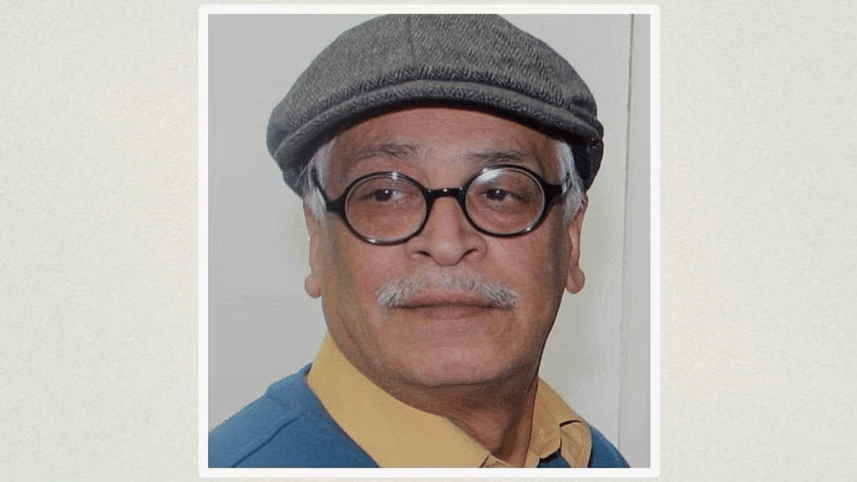Exiled poet Daud Haider no more

Poet Daud Haider, known for his timeless poem Janmo-i Amar Ajanmo Pap (My Birth, My Eternal Sin), died while undergoing treatment at a Berlin hospital early yesterday (Bangladesh time).
He was 73.
On December 12, Daud Haider collapsed on the stairs of his home in Berlin. He was hospitalised following the injury and had been under intensive care for many days.
Later, he was diagnosed with colon cancer. However, his physical condition was too fragile for chemotherapy, so alternative treatment was ongoing. Additionally, he had multiple age-related complications. He passed away while under treatment, said the poet's younger brother Zahid Haider.
Poet's niece Shaonti Haider, an associate professor at Dhaka University's mass communication and journalism department, said her uncle's body would be kept in a mortuary. He will be buried in Germany, but the date is yet to be fixed.
Following Bangladesh's independence, Daud became the first litterateur to be exiled due to his writings. He was exile in 1974 to India and he moved to Germany in 1987.
His poem "Kalo Shurjer Kalo Jyosnai Kalo Bonnyai" was published in the Dainik Sangbad in February 1974. He was then accused in a case over "hurting religious sentiments". A protest broke out and police arrested him in March that year.
The poet was eventually released on May 20 that year, but in absence of security, he was sent to India. With the assistance of Nobel Prize-winning German writer Günter Grass, he flew to Germany in 1987. Since then, he had been residing in Berlin.
Daud, a bachelor, left behind three brothers, four sisters, and a host of relatives and admirers to mourn his death.
He was born on February 21, 1952, in Pabna. Some of his famous works are Janmo-i Amar Ajanmo Pap, Sampanna Manush Ami Noi, Narokiya Bhuboner Kobita, Je deshe Sobai Andho, Dhushor Ghodhuli Dhulimoy, Ami Bhalo asi, Tumi?
Daud also wrote children's book Babui Pakhi, autobiography Illin Jhillin, and satire tilted Bilomboer Deri Holo Keno.



 For all latest news, follow The Daily Star's Google News channel.
For all latest news, follow The Daily Star's Google News channel.
Comments